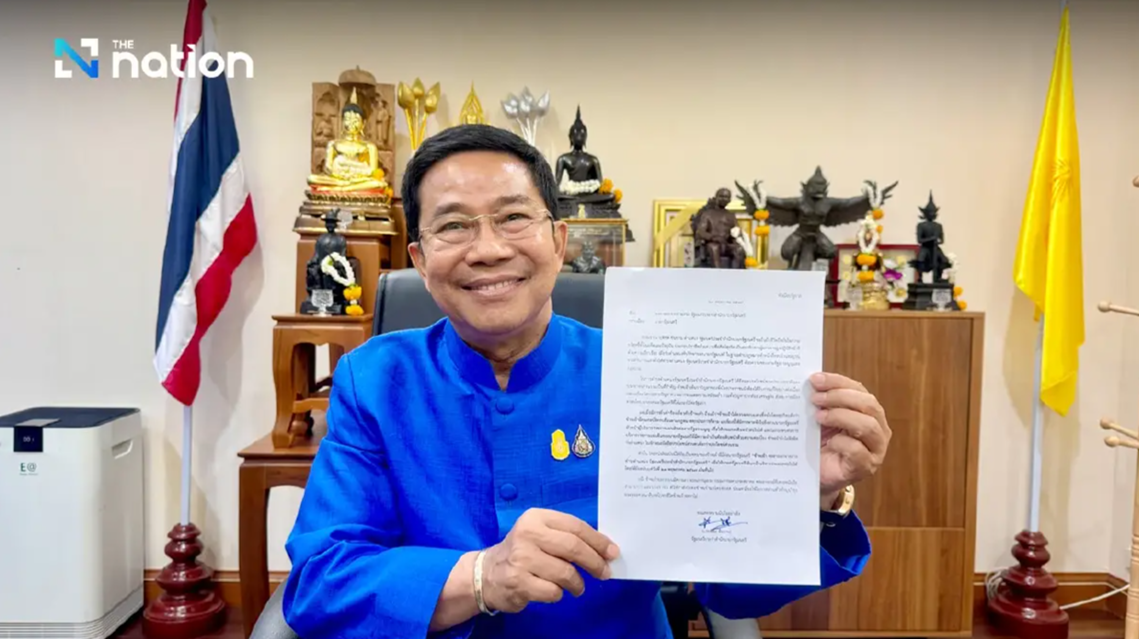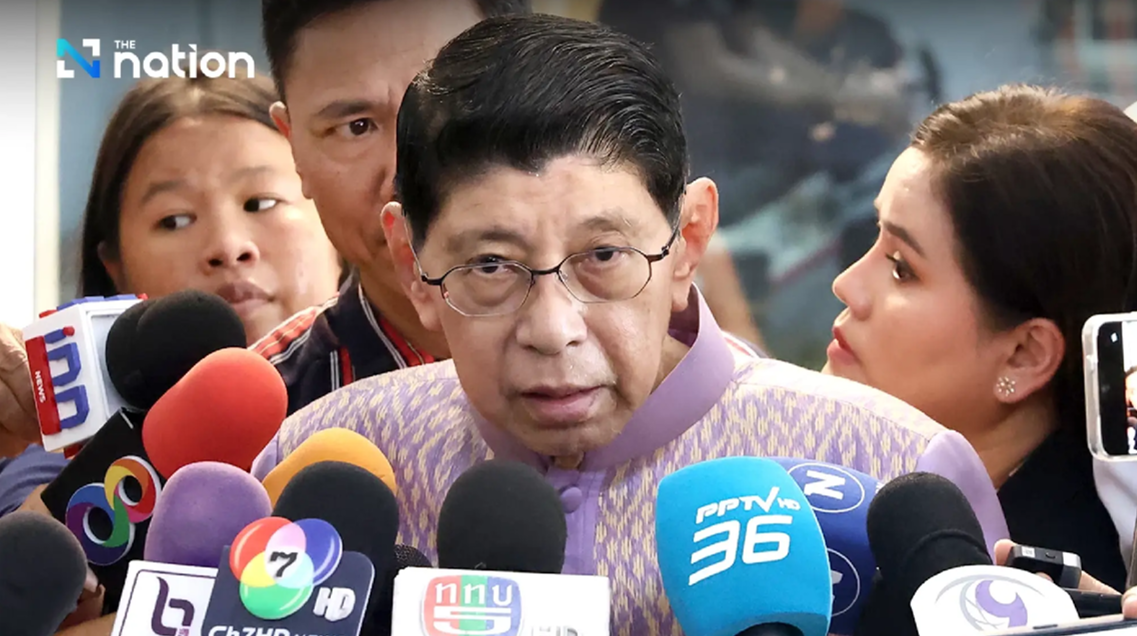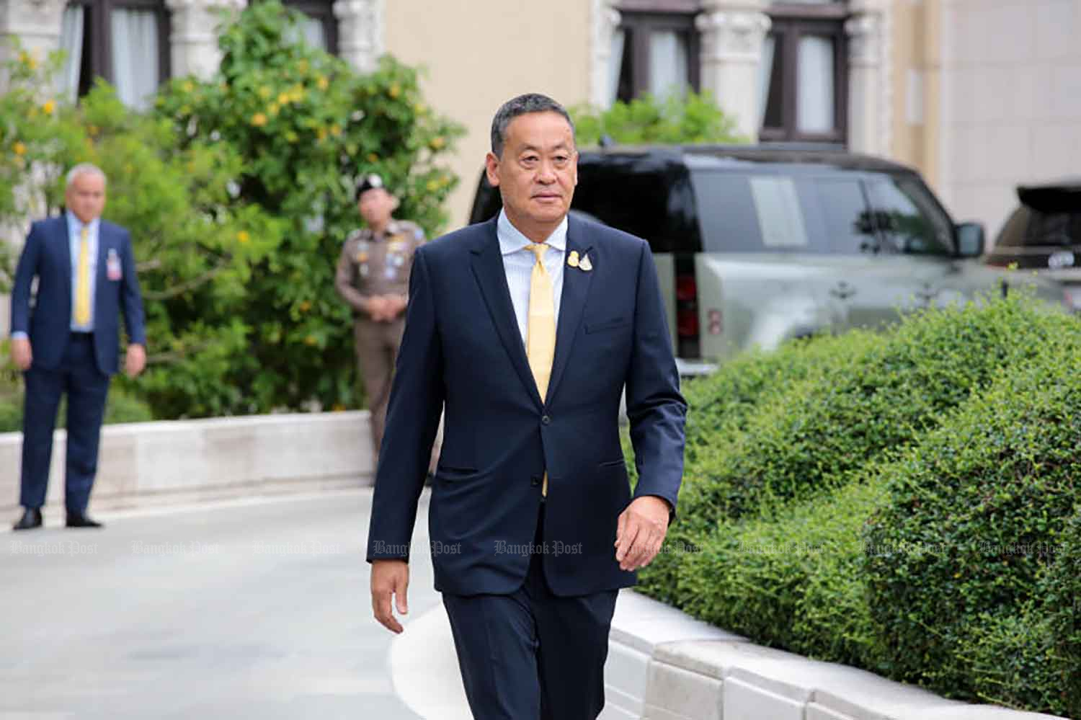On June 12th, Thailand’s Constitutional Court ordered Prime Minister (PM) Srettha Thavisin and the 40 senators to submit their lists of evidence and witnesses by June 17th. The nine judges held the first hearing in the case the senators brought against Srettha for his appointment of Cabinet member Pichit Chuenban. The judges also scheduled the next hearing for the petition for June 18th.
Court Case Against Srettha
On May 17th, 40 senators submitted a petition to the CC that requested the court determine if Srettha disqualified himself from continuing as PM. The senators, mostly from the conservative and military factions, signed the petition, which was submitted to the court by Senate President Pronpetch Wichitcholchai. The court would determine if Srettha violated Section 170 of Thailand’s Constitution by appointing Pichit as Minister Attached to the Prime Minister’s Office in April 2024. The court will remove Srettha as PM if it decides there is enough evidence that he used his authority to appoint Pichit as a minister despite issues related to his suitability. The petitioners point out that Pichit lacks honesty and has exhibited past behavior that “seriously violated or failed to comply with ethical standards.” The senators highlighted his “violations of court authority and a court order for imprisonment.”
In 2008, Pichit was found guilty of bribery for handing a court administrative officer a paper bag containing $54,000 USD (2 million Baht) as a bribe during the Ratchadapisek land deal trial. Pichit represented former PM Thaksin Shinawatra during the trial. The Thai Supreme Court sentenced him to six months in prison for contempt of court when he argued the box was only supposed to contain snacks. However, the prosecutor’s office dismissed the bribery charges against Pichit regarding the ‘snack box’ scandal. Furthermore, the Law Society of Thailand disbarred Pichit for both the bribery scandal and other incidents that “clearly showed corrupt behavior” in the justice system. One of the senators who signed the petition, Kirekrit Jenkrongtham, said, “it was the duty and responsibility of the senators to act as representatives of the people.” Kirekrit pointed out that it was necessary to ask the CC to determine Pichit’s suitability for his position due to the significant public debate and scrutiny regarding Pichit’s appointment.

Pichit stepped down as the PM’s Officer Minister to prevent the CC from considering the petition that the 40 senators submitted to the CC on May 21st. Pichit said he resigned “to allow the country to move forward and not affect the PM’s authority to govern; I have decided not to seek personal benefit over that of the public.” The former minister refused to answer why he decided to quit after previously insisting that he would not resign since his appointment was constitutional and legal. On May 23rd, the CC held its first meeting regarding the petition, where it voted 6-3 to proceed with the case and voted 5-4 not to suspend Srettha pending the trial.

Cabinet Secretary General Natjaree Anuntasilpa said the PM’s written defense is being prepared. She said she was ready to testify in his defense if summoned on May 28th. Natjaree said she could not provide any additional details because she was writing the draft defense. Furthermore, she also said if Srettha asked her to consult with former Deputy PM and law expert Wissanu Krea-ngam during the writing process, she would do so. She said the Cabinet Secretariat “carefully screened the qualifications of all Cabinet members since the current charter was enacted in 2017” and was ready to explain the process. Natjaree said she did not know if the 15-day deadline for submitting the defense would be extended since she did not see an official statement from the CC about the written defense.
On June 4th, Srettha appointed Wissanu as his legal adviser, and his first task will be to assess the PM’s written defense over the appointment of Pichit as a minister. He will also hold the former position Pichit held before he resigned in late May. Wissanu said he learned that the first draft of the defense is complete, and he will review it today [June 4th]. He said if there is nothing wrong, then he will give Srettha approval to sign and submit it to the CC by June 10th. Wissanu will oversee the government’s legal affairs, monitor the weekly Cabinet meetings, and report on any problems. He pointed out that he “will not raise objections in the meetings but will inform the prime minister later.” Wissanu also said that if any legal problems occur during the meetings, he could “act as a witness and help recount the meeting.”

Srettha said his written defense was submitted to the CC on June 7th, which explained why he appointed Pichit as a minister “despite his so-called questionable background.” However, he did not discuss the details of his argument when reporters asked if he could provide more information. The PM said “he is worried” about the potential outcome of the case that accuses him of breaching the Thai Constitution’s ethics code. However, he also pointed out that “nothing is certain as these issues are political in nature.”
Analysis
The CC will likely find Srettha guilty of breaching the ethics code and potentially remove him as PM. Srettha’s removal as PM will cause significant economic and political issues in Thailand. The CC decided to move forward with the case because the senators’ petition had enough merit to proceed with the case. For example, the CC concurred with the petition’s argument that Srettha should not have appointed Pichit as a minister due to his past unethical actions. Srettha said the court should not judge Pichit based on his past actions but on his actions after he was appointed minister. The court is concerned with Pichit’s association with Thaksin since the former PM has a history of corruption and unethical behavior.
The PM is worried because of the potential for the court to find him guilty of violating Thailand’s ethical codes. For example, Srettha’s appointment of Wissanu as his legal adviser illustrates his worry over the case since Natjaree and his Secretary General, Prommin Lertsuridej, were responsible for his defense. This worry is due to Srettha’s understanding that the court would be impartial in hearing the case and not be affected by outside influences such as the Thaksins, the Thai government, or the Pheu Thai Party. The PM decided that he required another adviser who would understand the specific legal issues he is currently facing.
Srettha’s removal as PM would cause significant issues with Thailand’s economy. The government is in the process of implementing projects that would solve Thailand’s economic issues. The short-term economic stimulus plan, which includes a 500-billion-Baht digital wallet plan for all eligible Thai citizens. The plan would allow the government to begin to solve some of the issues related to the economic downturn, such as the high public debt. Thailand’s economic restructuring plan to increase the country’s GDP will build upon the solutions provided in the short-term plan. The passage of the 2024 fiscal budget and the flood prevention plan are two other projects that would help resolve Thailand’s economic issues.
The government had not disbursed the final part of the 2024 fiscal budget, which is needed since it has $136 million USD (500 billion Baht) earmarked for an investment budget. The Thai Parliament will also face significant issues in discussing and setting the 2025 budget. The flood prevention plan would allow Thailand to secure its long-term economic growth through flood prevention and water management. The plans would face significant issues with their implementation because the government and Pheu Thai Party would need to determine the next PM. Furthermore, Srettha’s removal would also cause significant risks to emerge that would damage foreign and Thai investor confidence.
Srettha’s removal as PM would cause significant issues with Thailand’s economy. The government is in the process of implementing projects that would solve Thailand’s economic issues. The short-term economic stimulus plan, which includes a 500-billion-Baht digital wallet plan for all eligible Thai citizens, will allow the government to begin to solve some of the issues related to the economic downturn, such as the high public debt. Furthermore, the digital wallet plan would allow the Thai population to have greater access to funds than they had previously. Thailand’s economic restructuring plan to continue the country’s GDP expansion is equally important to the short-term stimulus plan. The government designed the restructuring plan to follow through with the successes of its short-term counterpart and develop long-term economic gains.
The 2024 fiscal budget and the flood prevention plan are two projects that would also help resolve Thailand’s economic issues. The budget contains approximately $136 million USD (500 billion Baht) that is meant for an investment budget to boost the economy. Furthermore, the government would also use the budget to provide some level of relief to various sectors adversely affected by the country’s economic downturn. However, the government did not disburse the final part of this year’s budget, which contained the money for the investment fund. Strettha’s removal as PM would likely cause delays in the allocation of the remaining budget because the government would need to swear in another PM.
The delay would also extend to negotiating Thailand’s 2025 budget. The flood prevention plan would allow Thailand to secure its long-term economic growth through effective flood prevention and water management projects that would decrease the severity of flooding throughout the country. However, the plan would face significant delays because the government would be more focused on finding a suitable replacement. Srettha’s removal would also cause foreign and Thai investors to begin to view Thailand as a country that is not viable for investment due to its economic and political instability.
The potential removal of Srettha would have a profound impact on Thailand’s domestic politics. The Pheu Thai Party leader, Paetongtarn Shinawatra, said she is not prepared to become PM if Srettha were to lose his position since he has to continue to “do his job and I am still the party leader.” Paetongtarn said there is no need for an alternative plan since Srettha can still perform his duties and is focused on solving Thailand’s economic issues. Thaksin also commented that he believes that Srettha will stay in the PM’s office for as long as possible, despite the ongoing case.
He wants the PM to stay in his position because it allows Thaksin to buy time to delay the various cases against him and to enact laws that he wanted to enact during his time as PM. However, he does not want his daughter Paetongtran to step in as PM because that would increase the level of scrutiny the conservatives and military factions would have regarding the party’s and Thaksin’s activities. Furthermore, Wissanu’s appointment as legal adviser caused significant issues with several Pheu Thai Party members because he served under the military government. The PM stated that he is willing to “clear the air” with any of the party members concerned or upset over Wissanu’s appointment.
If the court removes Srettha as PM, then the Thai Parliament will be dissolved and new elections will occur. The elections would allow the Move Forward Party (MFP) or its successor to run in the elections and receive the largest share of the votes, like it did in the 2023 general elections. However, there are issues that would likely impede the party’s ability to elect Pita Limjaroenrat as the new PM. The most significant issue is that Pita and the MFP would need the Pheu Thai Party so he could receive enough votes to become PM. The other issue is that the CC would likely bar any member of the MFP from holding office after finding the party guilty of trying to overthrow the constitutional monarchy.

